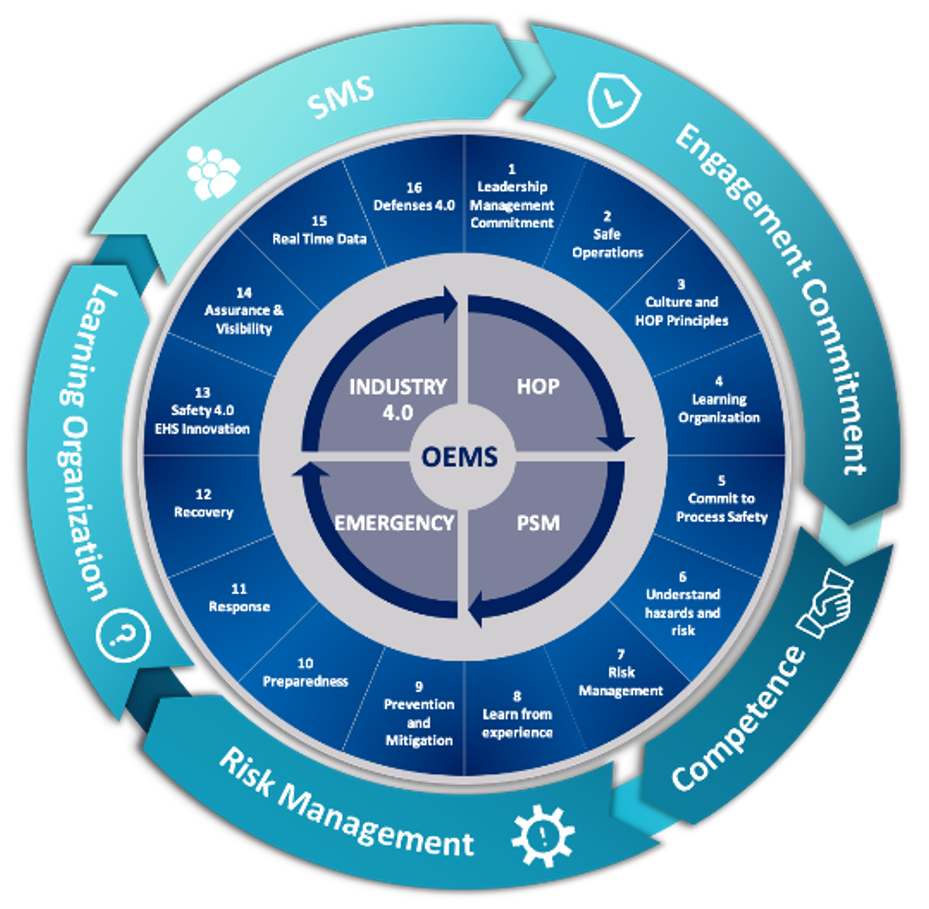Next Topic
Select SDGs to find out how we are taking action in support of the UN Substinable Development Goals
2022 ISRAEL CHEMICALS LTD. | ALL RIGHTS RESERVED

Industrial production in general, and the chemicals and mining industry, in particular, requires implementing special precautionary measures to maintain a safe and healthy work environment.
During the global COVID-19 pandemic, ICL closely followed the situation and established a designated task force that has been in continuous contact with ICL teams across the globe to ensure that all required health and safety measures are in place. Actions taken included working from home, providing required protective equipment (such as face masks and sanitizers) to all global locations, postponing business flights and communicating precautionary instructions to employees.
Read More
ICL complies with strict occupational safety and health standards as well as invests extensive resources in safety training to prevent accidents and ensure the health and safety of its employees, contractors, and visitors to ICL sites, as well as those in our product supply chain. The Company continuously fosters a strong safety culture and enhancing employee awareness, aiming for top-tier safety performance.
ICL has implemented a new OMES-EHS operations management system that provides the framework and structure to drive operational excellence for industry-leading safety and reliability performance across the organization.
A critical element in ICL’s EHS&S policy is to ensure that ICL’s operations, products and distribution systems are safe and secure for employees and site contractors as well as guests, distributors, suppliers and communities in which the Company’s facilities are located.
ICL’s 5 Safety Principles are designed to reduce events in the work environment and to promote safety at the highest level. The principles include:
Human and Organizational Performance (HOP) is changing the safety and sustainability culture. The HOP methodology supports ICL’s 5 Safety Principles and calls for early detection and prevention. HOP aims to develop organizational transparency, as well as education and creation of defense mechanisms, to assure that employees return home safely. Moreover, the HOP approach creates dialogue and knowledge sharing in the organization between managers and employees.
As part of the HOP approach, ICL performs , professional training, safe environment patrols, executive controls, roundtables (lessons learned), hazard recognition, safe behaviour observations, proactive learning processes, weekly discussions and weekly closing sessions. The roundtables are an opportunity to discuss and learn about events without taking disciplinary action, taking into account a broad range of perspectives. Managers conduct surprise visits to determine employee preparedness and adequate supply of safety equipment.
This enterprise management system allows employees to send messages regarding issues and hazards of which they become aware, and to receive in return an update of actions taken to resolve or remove the hazards. Removing hazards before accidents occur reduces the risk of injury. Managers can also receive a clear view of safety performance in the plant.
Plant managers are responsible for fulfilling and implementing the program and engaging in activities and routines continuously.
ICL conducts comprehensive and repeated safety training and certification control systems for all employees, service providers, contract workers and others entering and working at Company sites.
ICL aims to implement a mindset of learning from failure and success across the organization. Analysis of accidents and “near misses” is encouraged and conducted by all ICL sites. Management meetings often include a case analysis of a recent safety incident, including conclusions and corrective actions taken.
Knowledge sharing is encouraged through regional safety forums, headed by regional safety leaders. These forums discuss ICL guidelines and policies, present safety events and hazards recognized at specific sites, and share ideas on preventative methods and lessons learned. This systematic knowledge sharing system helps to implement best practices and to create a safer working environment.
Organizational Competence
Organizational competence is defined as how well individuals are trained and competent to do the tasks that are assigned to them.
An EHS skills and knowledge matrix is being developed to promote organizational competence. It defines the expertise needed at all levels of the organization regarding EHS. A gap analysis is currently being conducted to identify where additional training and expertise are required to meet the Company’s EHS goals and objectives. The plan is to support the Risk Management Principle while building expertise in Job Safety Analyses and Process Hazard Analyses, as well as implementing ICL’s global EHS procedures and standards. All employees are required to be trained regarding all relevant safety data and procedures for their specific role in the Company.
As part of the organizational competence principle, ICL has developed trained, skilled and well-equipped emergency groups at its production sites to ensure an appropriate response to industrial emergencies and natural disasters. The emergency groups, as well as other relevant employees, perform emergency drills with various scenarios in accordance with an annual plan.
Risk Management
ICL’s Risk Management Principle focuses on process safety at all sites throughout the Company. To accomplish this, the Company continues to develop and implement its policies and standards guided by the CCPS framework which include the EU Seveso Directive, OSHA PSM Regulation and the UK HSE Control of Major Accidents. Each Company site will conduct maturate assessment according to these regulations and the Company’s standards. Major risks identified will be analyzed and sites will develop mitigation plans.
As ICL is a highly diversified company in operational terms, risks can vary significantly between its sites. For example, chemical facilities have several significantly different risk factors compared to ICL’s underground mines in the UK and Spain. The site-specific risks need to be identified and then mitigated.
Among other items, the risk surveys include a focus on operational processes, assets, activities and occupational hazards – with the purpose of preventing employees from exposure to hazardous materials and process risks.
In 2020, ICL held its third annual “Global Safety Week”, integrated into a Global ESG Week. Due to COVID-19, various events were virtual, but where possible, real-life activities occurred. Thousands of ICL employees participated in a full week of awareness activities conducted simultaneously at various ICL locations in Israel, the U.S.A, Europe, Brazil, Australia, and China. The main goal of this annual event is to engage with all of ICL’s employees and managers, increase pro-active behavior to reduce and prevent accidents and to emphasize that safety is everyone's responsibility.
Each of ICL’s production sites engaged in activities designed to increase safety in their specific production processes. These included site-specific scenario training, technical instruction and accident assessments. Other activities were held in ICL offices. These included safe driving training and car-accident simulators, home safety training, lectures and drills on earthquake scenarios, office ergonomics workshops and even lectures on how to maintain a healthy lifestyle. In addition, several videos were communicated globally where ICL employees who were unfortunately previously injured in work accidents shared their personal experiences. These videos were communicated to emphasize the great importance and relevance of safety to each and every employee.
ICL intends to continue this tradition of the ESG week in the future as an important part of the Company’s commitment to constantly raise awareness among its employees regarding environmental, social and governance issues.
ICL takes responsibility for its contractors and business partners, as part of the company’s vision to establish a leading position in safety practices. ICL is acting to ensure that its contractors are involved in proactive safety management, and have the right skills and knowledge to perform their work in a safe way. Since 2018, the company continuously performs contractor safety evaluations, in order to identify weaknesses and where safety enhancement efforts would be most effective. The evaluated contractors were checked and ranked on specific safety categories such as:
After the evaluation, contractors who excel receive a recognition certificate. Moreover, the company works on improvements with the evaluated contractors on any identified gaps. ICL aims to continue and increase its engagement with its contractors, to ensure their safe work.
ICL manages its occupational health & industrial hygiene to recognize, evaluate, and minimize employees’ exposure to occupational health hazards. As a chemical industry company, ICL must manage and reduce the risk of potential hazardous exposure to materials, processes, production and mining.
Read MoreICL’s senior management is undertaking specialized EHS training aimed at building a better understanding of EHS concepts and allowing the managers to make proper inquiries as they visit sites across the Company’s global operations. The goals of this process are changing the Company mindset, driving all sites and BU’s to adopt improved safety behavior and improving day-to-day commitment, as well as engagement levels of ICL employees worldwide.
Example of such inquiries include:
To further promote safety engagement, several ICL sites and business units issue awards to ICL and contractor employees for their safe behavior and/or engage in annual safety contests between sites (including prizes for safety achievements).
In addition, many ICL sites have created BU/site specific employee engagement plans such as the safety proactive activities’ (see further details below) and the HOP (Human Operational Performance) program to improve their safety culture. These programs include (among others), the establishment of site improvement teams that operate to develop and implement advanced and original ideas for improving safety.
Some ICL sites maintain site-specific safety committees that are comprised of representatives of management and employees. Each committee defines and implements safety measures such as mandating the use of personal protection equipment and requiring periodic checkups for employees.
Safety and health issues are also included in most ICL labor agreements. For example, the following health and safety topics are covered by the Company’s labor agreements in Israel:
One of the important pillars on which ICL focuses as part of its EHS management organization’s improvement is Emergency & Crisis management. ICL’s management has established a goal of implementing an Emergency & Crisis management module at all sites in addition to emergency and crisis management teams that operate across the entire organization.
During 2020 the Emergency & Crisis Management module was implemented successfully by most of ICL’s sites globally.
There is great value in real time data from the production floor/field/control center, etc., especially in emergency and crisis situations. ICL can gain great advantages from using the module, including: reliability, transparency, online availability, communication with production, documentation, learning and lessons learned from the data log. Benefits also include reducing communications platforms since all data updates flow directly through the app dashboard allowing the site teams to operate in an event with minimal disruption.
EHS innovation is part of ICL’s Industry 4.0. The Company is incorporating innovative technologies to increase safety for its employees and assets. Digitization is occurring in multiple dimensions regarding preventing, mapping and reporting incidents and accidents.
Technology is also driving better data management and enabling real time data feedback.
New technology will help ICL be more resilient, decrease human errors and prevent crises. Read more

